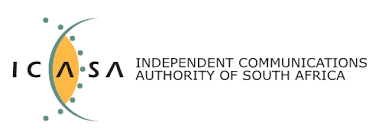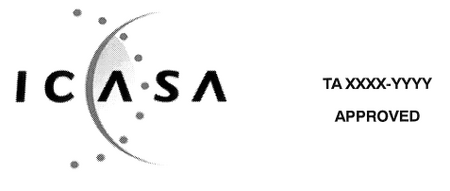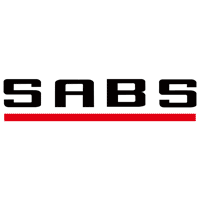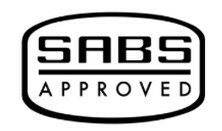South Africa
Certification services in South Africa:
These three schemes will not always be mandatory since it depends on the product that is intended to be marketed in South Africa.
ICASA APPROVAL PROCESS
ICASA is South Africa's official communications, broadcasting and postal services regulator. Radio frequency transmitter and receiver products that make use of the radio spectrum or connect to the public network and are intended to be marketed in South Africa are subject to mandatory ICASA type approval certification, unless specifically exempt by the Regulatory Authority.

ICASA issues TYPE APPROVAL for Any Equipment used or to be used in connection with the provision of electronic communications, unless explicitly exempted by the Authority.
Applications for Type Approval:
- Manufacturers;
- importers;
- distributors; and
- any South African registered company
Testing for ICASA Approval can only be issued at ISO17025 Accredited Test Laboratories.
Applicants must provide a local supplier (the certificate will appoint a specific supplier).
The validity of the ICASA approval
The validity of the ICASA approval is indefinite and the ICASA Approval process lead time is around 6 weeks.
ICASA LABEL REQUIREMENTS:
All equipment that has been Type-Approved by ICASA must be labeled and comply with the National Authority's Labeling Regulations:

The minimum size of the ICASA logo is 3mmx3mm.
The height to width ratio of the overall ICASA label must be 1:2 (eg 10 x 20 mm)
The label must include the ICASA logo and the certificate number issued by ICASA
The ICASA certificate number must adhere to the following format: TA XXXX-YYYY, where:
TA: Type Approval
XXXX: Year in which the TA Certificate was issued
YYYY: Number sequence issued by ICASA.
The label must be clearly legible on both the equipment and its packaging. The label must be properly protected against any damage that it may incur and that could lead to confusion. When requesting type approval, Local Suppliers must indicate whether an e-label and/or a printed label will be affixed to the equipment.
APPLICATION PROCESS
The type approval and licensing process consists of the following three phases:
- Testing of the performance in accordance with the applicable technical standards
- Testing of electromagnetic compatibility (EMC) – both emission and immunity measurements
- Testing of safety
HOW LONG IT TAKES
The approval usually takes 30 days, on submission of all necessary documents
NRCS
The NRCS, which stands for National Regulatory Compulsory Specifications, is the approval body for electrical and electronic products that are intended to be marketed in South Africa.

NRCS TYPE APPROVAL PROCESS
The NRCS Approval process is a conformity assessment system and it serves as an electrical and electronic safety and energy efficiency mark. NRCS mandatory requirements are based on international standards; therefore, all equipment that falls within the Compulsory Specification Scope must comply with South African Safety standards. In essence, equipment that connects to the common network (230 V/400 V ac, 50 Hz) and all equipment that is rechargeable must apply for NRCS approval.
NRCS compliance testing according to safety and/or performance requirements can only be performed by accredited laboratories.
The NRCS Certificate has a 3-year validity period. The lead time to obtain this Certification is around 18 weeks and the petitioner must provide a Local Supplier.
NRCS LABEL REQUIREMENTS:
According to the NRCS, there are no mandatory requirements for product marking in order to ensure compliance with National Safety Standards. LOA Issued by the NRCS is sufficient to demonstrate compliance with NRCS requirements.
SABS
SABS, which stands for the South African Bureau of Standards, is a conformity marking assessment system that serves as an EMC (Electromagnetic Compatibility) Compliance Mark. SABS determines the national standards that must be complied with in order to get the EMC Approval certificate, known as the SABS CoC (Certificate of Compliance).

Is SAB mandatory?
There are voluntary and mandatory standards. Only 53 of the approximately 5,000 SABS standards are mandatory. However, depending on laws, other standards may also be considered mandatory (eg electricity standards).
TYPE APPROVAL PROCESS
SAB is applicable to all non-telecommunications products. Products for which ICASA is not applicable will require mandatory SABS approval.
According to SABS, products that have ICASA Type Approval do not require SABS.
SABS testing for EMC compliance can only be performed by Authorized Laboratories known as SABS A-Lab, according to the requirements of the ISO/IEC 17025 standard.
SABS Approval has a 3-year validity period and the petitioner must provide a Local Supplier in order to obtain it.
SABS LABEL REQUIREMENTS:
SABS Product Marking ensures that the product meets Safety, Quality and Redress requirements. The label must be displayed as seen below:

SABS LABEL must include:
- Manufacturer's trade or brand name (If there is no brand name, the manufacturer's permit number will suffice)
- Model number
- Ratings requirements (Voltage, current, power, frequency…)
- When a small subset of the specification is tested, the standard number will be added to the marking.
How to get Type Approval in South Africa
To ensure successful testing and approval, start by consulting with one of WWBridge 's outsourced experts to help determine which standards apply to your product. Our team has over 12 years of experience helping companies comply with standards and regulations in nearly 34 countries around the world. We offer the expertise to get your products to market faster - contact us today at [email protected] .
Certification experts will be pleased to consult you in your own language





